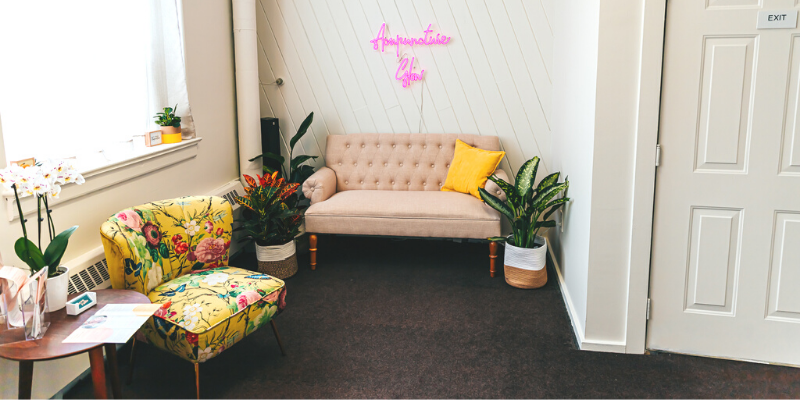
Acupuncture and Anxiety
Did you know acupuncture is wonderful for reducing anxiety, and there’s lots of research to back it up?⠀
How does it work?
Acupuncture regulates serotonin (which impacts mood and sleep, among other things) [reference]. It also regulates the autonomic nervous system and reduces elevated heart rate [reference], lowers cortisol levels [reference], and increases endorphins – all of which make it phenomenal at relieving anxiety. In effect, acupuncture helps take the body of out “fight or flight mode.”
There’s been quite a bit of research on acupuncture for anxiety.
In research, the gold standard is the “systematic review.” A systematic review gathers all of the high-quality research studies that were completed on a particular topic and compiles the data. From this very large pool of data, they draw broad conclusions about the topics being researched.
Several systematic reviews in the past decade support the use of acupuncture for reducing generalized anxiety and panic attacks:
For example, a 2016 systematic review of acupuncture and anxiety “…showed positive and statistically significant effects from using acupuncture for treating subjects with anxiety” [reference].
Another, more recent systematic review from 2018 took a look at an even larger group of studies, several of which compared acupuncture to pharmaceutical treatment.
They concluded that, “Overall, there is good scientific evidence encouraging acupuncture therapy to treat anxiety disorders as it yields effective outcomes, with fewer side effects than conventional treatment” [reference].
⠀
In fact, acupuncture has been found to help anxiety in many different (and sometimes unexpected!) patient populations:
- Pre-operative anxiety [ref]
- Exam anxiety in medical students [ref]
- Pre-competition anxiety is young athletes [ref]
- Those experiencing anxiety from morphine withdrawal [ref]
How does acupuncture treat anxiety from a Chinese medicine point of view?
Acupuncture is part of the comprehensive healthcare system called Traditional Chinese Medicine (TCM). TCM is all about restoring the body to balance – in biomedical terms, restoring homeostasis.
The goal is to balance both the emotional and physical symptoms of anxiety.
In TCM, the mind and the body are never separated. In other words, what impacts the emotions will eventually impact the physical body, and vice versa. They are tied together and, according to TCM, you can’t treat one without treating the other.
That is great news for anxiety sufferers, because many people experience physical symptoms with their anxiety – not just emotional ones. They may experience heart palpitations, racing heart, chest pressure, stomach pain or distress, shortness of breath, tunnel vision, and more.
Acupuncture addresses all of these symptoms, as well as the emotional stress that comes along with anxiety. Again, the goal is always balance.
How many treatments will I need?
While most people feel a difference right after the first treatment, a series of 6-8 treatments is usually recommended for lasting results.
Acupuncture is cumulative, which means that the results of each treatment build on the results of the ones before it. It’s helpful not to let treatments get too far apart in the beginning or the results may not be as strong.
I usually recommend that patients come once a week for 6-8 weeks in the beginning, and then we can start spacing treatments out. For those with chronic conditions (including long-standing anxiety), monthly maintenance treatments are recommended.
I compare it to working out – you may feel a difference after one workout, but the results will probably not be long-lasting. Regular workouts give the results staying power. The same is often the case for acupuncture and chronic conditions.
Can I really relax and calm my anxiety with needles in?
This is a great question! The answer is heck yes 🙂 I know it sounds unlikely that resting with needles in would be possible, but it really is. Most of my patients fall asleep on the treatment table, no matter what they’re being treated for.
How? Two reasons. 1) The needles are incredibly thin – the width of a human hair – and many people don’t even feel them going in. And 2) remember, acupuncture dissolves the body’s “fight or flight” response. So you’ll feel slowly more and more relaxed as you rest on the table.
If you’re struggling with anxiety, come in and give acupuncture a try.
I think you’ll be surprised at how relaxed your body feels during and after your treatment!
As always, feel free to contact Seneca Falls Acupuncture with questions. We’re happy to help!
Email: michelle@senecafallsacupuncture.com
Call or Text: (607) 216-8112
